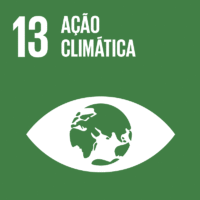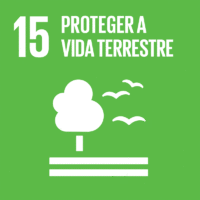Ciência_Iscte
Publicações
Descrição Detalhada da Publicação
Proceedings of the 55th ISOCARP World Planning Congress 2019
Ano (publicação definitiva)
2019
Língua
Inglês
País
Indonésia
Mais Informação
Web of Science®
Scopus
Esta publicação não está indexada na Scopus
Google Scholar
Esta publicação não está indexada no Overton
Abstract/Resumo
Humanity is now believed to live in a new geological epoch, the Anthropocene, as changes have been reported on the atmosphere, air, water, and soil, but also on societal perceptions of these issues. This presentation departs from the theoretical assumption that the impact of the abovementioned changes on culture and the environment have not yet found a stable influence on urban planning. This presentation overviews the implications of the food system within urban planning while considering it as a socio-technical system which integrates production, distribution, transformation, consumption and disposal patterns. The production phase of the food system in particular, emerges as a fundamental planning challenge, extending to urban form solutions, individual behaviours, dietary regimes, inequalities in foodsheds planning, and the cultural capital of food. Accordingly, the food system emerges here as an opportunity to identify how current urban fabrics of cities and their rural and regional hinterlands can be transformed in terms of their metabolic function and respond to the needs of people and the environment. To do so, this presentation introduces the preliminary results of an analysis conducted by an ongoing research project SPLACH – Spatial Planning for Change, at two particular scales: the region and the neighbourhood. Thus, while focusing in the Lisbon Metropolitan Area (LMA), in Portugal, we provide an analysis of the Regional Plan as well as of specific residential neighbourhoods located in LMA, regarding the relationship between the food system functioning and urban planning approaches. The analysis includes a comparative number of case studies which differ in urban form solutions, socio-economic conditions, but also geographical location. The results support the request for a stronger integration of the above-identified underexplored topics of the food system within urban planning, which will be fundamental to inform a new theory of the city that makes any serious contribution towards a sustainability transition.
Agradecimentos/Acknowledgements
--
Palavras-chave
Urban planning,Urban agriculture,Sustainability transition,Region,Neighbourhood
Classificação Fields of Science and Technology
- Outras Ciências Naturais - Ciências Naturais
- Outras Engenharias e Tecnologias - Engenharia e Tecnologia
- Artes - Humanidades
- Outras Humanidades - Humanidades
Registos de financiamentos
| Referência de financiamento | Entidade Financiadora |
|---|---|
| POCI-01-0145-FEDER-016431 | Comissão Europeia |
| UID/SOC/03127/2013 | Fundação para a Ciência e a Tecnologia |
Contribuições para os Objetivos do Desenvolvimento Sustentável das Nações Unidas
Com o objetivo de aumentar a investigação direcionada para o cumprimento dos Objetivos do Desenvolvimento Sustentável para 2030 das Nações Unidas, é disponibilizada no Ciência_Iscte a possibilidade de associação, quando aplicável, dos artigos científicos aos Objetivos do Desenvolvimento Sustentável. Estes são os Objetivos do Desenvolvimento Sustentável identificados pelo(s) autor(es) para esta publicação. Para uma informação detalhada dos Objetivos do Desenvolvimento Sustentável, clique aqui.

 English
English




